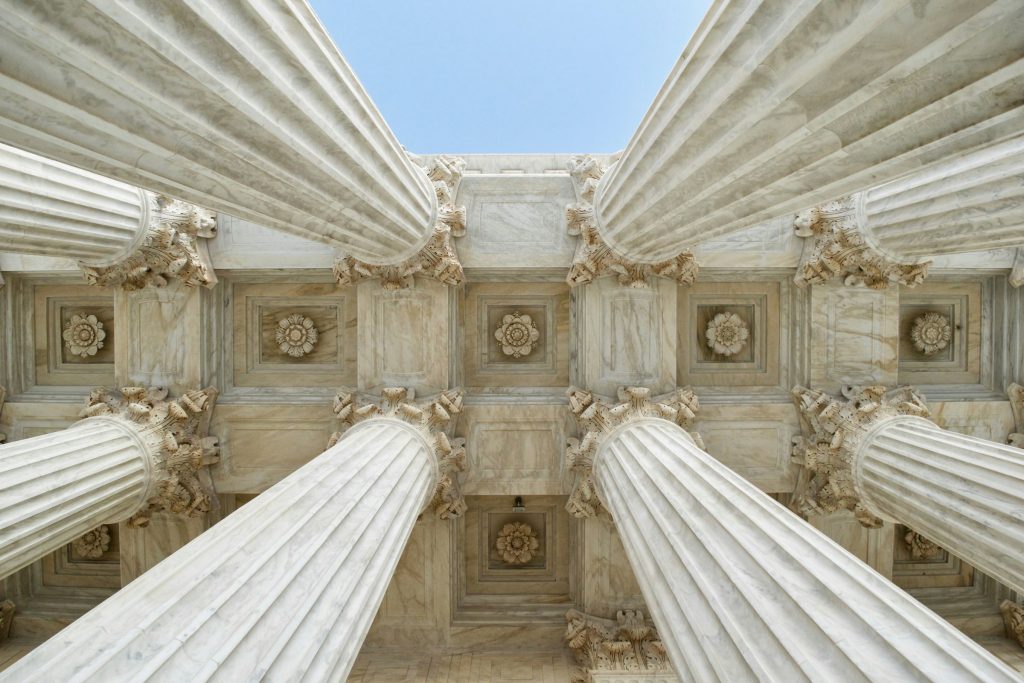Legal professionals for a 14-year-old transgender boy on Friday urged the Supreme Court to go away in place a ruling by a federal appeals court docket that requires a South Carolina college district to permit the coed to make use of the boys’ rest room for now. The teenager, recognized solely as John Doe, is difficult a state law that requires college students to make use of the loos that correspond to their organic intercourse “on the time of beginning.” Legal professionals for the teenager emphasised that the order by the U.S. Court docket of Appeals for the 4th Circuit is a slim one which “solely applies to John” and “doesn’t in any other case prohibit the federal government from persevering with to implement its state-wide ban on transgender college students’ use of public college restrooms whereas John’s attraction proceeds on the Fourth Circuit.”
South Carolina first enacted the regulation in its 2024-25 price range appropriations invoice, after which once more in its 2025-26 invoice. Faculty districts that don’t adjust to the ban face the lack of 25% of the state funds allotted to them.
Throughout the 2024-25 college 12 months, Doe, then in eighth grade, was suspended for a day for utilizing the boys’ rest room, and faculty officers mentioned Doe might probably be expelled by persevering with to take action. Doe’s dad and mom pulled him out of in-person college, utilizing on-line college choices as an alternative. However the household determined that Doe ought to return to in-person college for the 2025-26 college 12 months, which started on Aug. 13.
In his lawsuit, Doe alleged that the state regulation violates federal civil rights legal guidelines prohibiting gender discrimination in academic applications that obtain federal funding, in addition to the Structure’s equal safety clause, which usually requires the federal government to deal with equally located individuals the identical.
A federal district court docket put the case on maintain after the Supreme Court docket agreed to evaluate the 4th Circuit’s determination in West Virginia v. B.P.J., which struck down a state regulation barring transgender ladies from taking part on ladies’ sports activities groups as a result of it discriminated “on the idea of intercourse.”
Doe requested the 4th Circuit to permit his case to maneuver ahead and to order the college district to permit him to make use of the boys’ rest room whereas litigation continued, and the court docket of appeals agreed. It pointed to the 4th Circuit’s 2020 determination in Grimm v. Gloucester County School Board, wherein it held {that a} Virginia college district’s refusal to permit a transgender boy to make use of the boys’ rest room violated each federal regulation and the Structure. The college board coverage in Grimm, the court docket famous in Doe’s case, “was in all materials respects similar to” South Carolina’s regulation.
The state came to the Supreme Court last week, asking the justices to intervene. “In recent times,” the state wrote, “a rising judicial consensus has acknowledged that this follow of ‘separating college loos primarily based on organic intercourse passes constitutional muster and comports with Title IX.’” Calling the 4th Circuit’s determination in Grimm a “discredited outlier” that “ought to (and will quickly) be overturned,” the state argued that in its current determination in United States v. Skrmetti, wherein the court docket upheld Tennessee’s ban on sure medical remedies for transgender teenagers, the court docket utilized a much less stringent normal of evaluate than the 4th Circuit in Grimm and “rejected Grimm’s view of discrimination ‘on the idea of intercourse.’” And the state warned that except the Supreme Court docket steps in, South Carolina – together with the college district and college students – will “endure[] precise, ongoing, materials harms.”
In a 40-page submitting, Doe’s legal professionals pressured that the federal government’s “utility for emergency aid issues one ninth-grader’s restroom use.” As a result of South Carolina can implement the regulation in all places else within the state, they wrote, “[t]hat is hardly an emergency warranting a keep from this Court docket, a rare intervention in an ongoing attraction.” They famous that South Carolina had been “unable to establish a single concrete harm it will endure” if the Supreme Court docket didn’t intervene – typically a key criterion for the justices in deciding whether or not to grant emergency aid. “In contrast,” they continued, “John desperately wants the Fourth Circuit’s injunction ‘to carry out a primary bodily operate in school with out the state’s interference.’”
Doe’s legal professionals pushed again towards South Carolina’s suggestion that Skrmetti “ensures its success.” Skrmetti, they contended, “doesn’t communicate to the questions” in Doe’s case. “The appeals courts are in settlement {that a} ban like” South Carolina’s “classifies primarily based on intercourse, and the federal government can’t present on this posture and on this document that this regulation will survive heightened scrutiny.”
Posted in Emergency appeals and applications, Featured
Instances: South Carolina v. Doe
Really useful Quotation:
Amy Howe,
Legal professionals ask Supreme Court docket to permit transgender boy to make use of boys’ rest room,
SCOTUSblog (Sep. 5, 2025, 5:00 PM),
https://www.scotusblog.com/2025/09/lawyers-urge-supreme-court-to-allow-transgender-boy-to-use-boys-bathroom/
